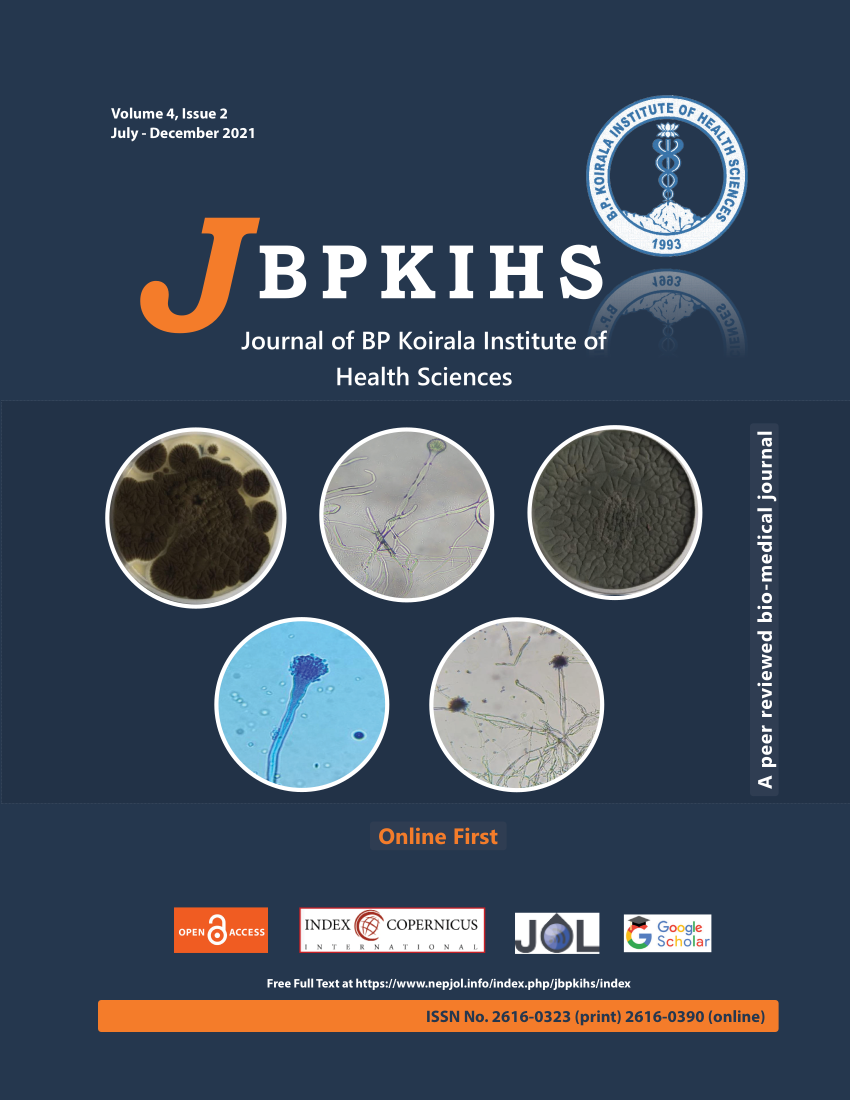Quality of Life Assessment in Male Patients With Androgenetic Alopecia
DOI:
https://doi.org/10.3126/jbpkihs.v4i2.37498Keywords:
Androgenetic Alopecia, Psychological distress, Quality of LifeAbstract
Background: Androgenetic alopecia (AGA) is characterized by progressive thinning of scalp hair defined by various patterns. Although there are no serious direct health consequences, the loss of scalp hair can be psychosocially distressing, thus it may significantly affect a variety of psychological and social aspects of one’s life and the individual’s overall quality of life (QoL). This cross- sectional study aimed to assess the QoL of male patients with AGA.
Methods: TA total of 176 clinically diagnosed cases of AGA with Hamilton- Norwood grade III and above presenting to Outpatient Department of Dermatology at B. P. Koirala Institute of Health Sciences, Dharan were enrolled in the study. Hair specific Skindex-29 was assessed in these patients.
Results: Among 176 patients, 120 (68.18%) had a grade III AGA and 56 (31.82%) had grade IV-VII AGA. One hundred and forty (79.55%) patients were aged < 35 years. Family history of AGA was present in 108 (61.36%) patients. Hair specific Skindex (mean ± SD (median)) in patients with androgenetic alopecia was 14.24 ± 18.29 (6.46). The emotional, symptomatic and functional scores (mean ± SD (median)) of patients were 20.3 ± 22.41 (12.0), 11.34 ± 14.69 (5.71), and 10.78 ± 17.79 (1.66) respectively.
Conclusion: Patients with androgenetic alopecia were affected emotionally more than symptomatically and functionally. It is important for health professionals to assess QoL in AGA patients to provide better and appropriate care.
Downloads
Downloads
Published
How to Cite
Issue
Section
License
Copyright (c) 2021 Journal of BP Koirala Institute of Health Sciences

This work is licensed under a Creative Commons Attribution-NonCommercial-NoDerivatives 4.0 International License.
This license enables reusers to copy and distribute the material in any medium or format in unadapted form only, for noncommercial purposes only, and only so long as attribution is given to the creator.




